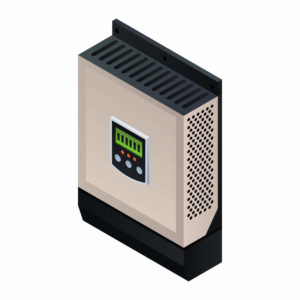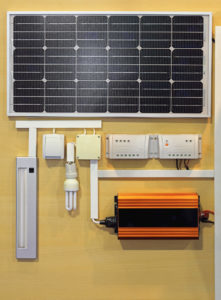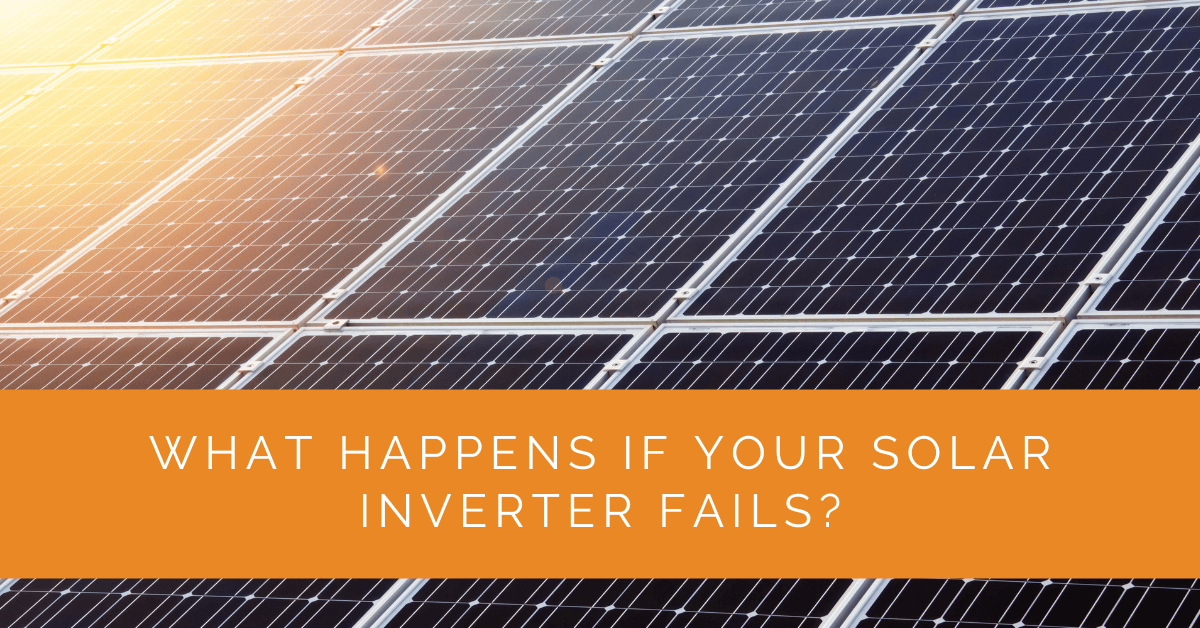The solar inverter plays a crucial role in a solar panel system, converting DC power generated by the solar panels into AC power for use in the grid. In this article, we will explore the implications of a solar inverter failure, common issues that can arise, signs of inverter problems, steps to take when facing inverter failures, and the importance of quality inverters for the long-term performance of your solar system.
Contents
- 1 Key Takeaways
- 2 Understanding the Role of the Solar Inverter
- 3 Common Issues with Solar Inverters
- 4 Consequences of Inverter Failures
- 5 Signs of Inverter Problems
- 6 Steps to Take When Your Inverter Fails
- 7 Solutions for Inverter Failures
- 8 Importance of Quality Solar Inverters
- 9 Case Study: Addressing Solar Inverter Failure for Optimal System Performance
- 10 Expert Insights From Our Solar Panel Installers About Solar Inverter Failures
- 11 Experience Solar Excellence with Us!
- 12 Conclusion
Key Takeaways
- A solar inverter failure can result in reduced energy production or a complete shutdown of your solar panel system.
- Signs of inverter problems include decreased energy output, error messages, and unusual noises from the inverter.
- When facing inverter failures, it is important to immediately contact your solar installer or a qualified professional to diagnose and address the issue promptly.
Understanding the Role of the Solar Inverter
The solar inverter is a vital component in a solar panel system, responsible for converting the direct current (DC) electricity generated by the solar panels into alternating current (AC) electricity used in the grid. It performs the crucial task of ensuring that the solar energy harvested from the panels is compatible with the electrical grid. The inverter monitors and regulates the voltage and frequency of the electricity, optimizing the system’s performance and enabling homeowners to harness solar energy efficiently.
In more technical terms, the solar inverter employs various circuits, such as the Maximum Power Point Tracking (MPPT) circuit, to continuously track the optimal power output of the solar panels. It adjusts the electrical characteristics to match the grid requirements, converting the DC power into AC power that can be used to power household appliances and fed back into the grid. Additionally, the inverter performs other functions like safety monitoring and shutdown during grid faults or irregularities.
Common Issues with Solar Inverters
Solar inverters, like any other electronic device, can experience various issues over time. Some common problems associated with solar inverters include:
- Component Failure: Inverters consist of several electronic components, such as capacitors, transformers, and semiconductor devices, that may degrade or fail due to aging, excessive heat, or manufacturing defects. Component failure can disrupt the proper functioning of the inverter and impact the overall performance of the solar panel system.
- Grid Faults: Power grid irregularities, such as voltage surges, frequency fluctuations, or grid faults, can adversely affect solar inverters. The inverter’s protective mechanisms may activate, causing it to shut down temporarily or operate at a reduced capacity until the grid issues are resolved.
- Environmental Factors: Environmental conditions, including temperature extremes, humidity, and exposure to dust or debris, can affect the performance and reliability of solar inverters. High temperatures, in particular, can reduce efficiency and increase failure rates in certain inverter models.
- Software or Firmware Issues: Inverters rely on software or firmware programs to control their operations and communication with the grid. Software bugs, compatibility issues, or outdated firmware versions can cause malfunctions or errors in the inverter’s functioning.

Consequences of Inverter Failures
When a solar inverter fails, it can have several consequences for the solar panel system and its energy production:
- Reduced Energy Production: Inverter failures can result in a significant reduction in the system’s energy production. As the inverter is responsible for converting the DC power from the solar panels into usable AC power, a malfunctioning or non-operational inverter can hinder the energy flow, leading to lower electricity generation.
- System Shutdown: Inverter failures can sometimes cause the solar panel system to shut down completely. When the inverter stops working, the system cannot convert the DC power into AC power, resulting in a complete loss of energy generation and potential financial losses.
- Safety Risks: Faulty inverters can pose safety risks due to electrical hazards. For example, if an inverter malfunctions and fails to disconnect the system from the grid during a power outage, it may continue to feed electricity into the grid, endangering utility workers attempting repairs.
It is crucial to address inverter failures promptly to restore the optimal functioning of the solar panel system, maximize energy production, and mitigate potential financial and safety risks.
Signs of Inverter Problems
Identifying early signs of inverter problems can help homeowners detect and address issues promptly. Here are some indicators that may suggest inverter issues:
- Decreased Energy Production: If you notice a significant decrease in the energy output of your solar panel system compared to its normal performance, it could be a sign of an inverter problem. Monitoring your system’s energy production regularly can help you identify such deviations.
- Error Messages or Warning Lights: Many inverters have display screens or indicator lights that provide status updates. Error messages or warning lights, such as fault codes or communication errors, can indicate inverter malfunctions or communication issues that require attention.
- Unusual Noises: Noises, such as buzzing, humming, or clicking sounds emanating from the inverter, can indicate internal component issues or loose connections. These noises should be investigated to ensure the inverter’s optimal functioning.
Regularly monitoring your solar panel system’s performance and being attentive to these signs can help you identify potential inverter problems early on and seek appropriate professional assistance.
Steps to Take When Your Inverter Fails
If you suspect an inverter failure in your solar panel system, it is important to take immediate action to minimize downtime and address the issue. Here are some steps to follow when your inverter fails:
- Contact Your Solar Installer: Contact your solar installer or a qualified professional who can assess and diagnose the inverter problem. They have the expertise to troubleshoot and determine the specific cause of the failure.
- Document the Issue: Document any error messages or warning lights displayed on the inverter and any other relevant information about the symptoms or timing of the failure. This documentation will assist the professional in accurately diagnosing and resolving the problem.
- Diagnose and Repair: A qualified professional will diagnose the inverter failure to identify the underlying cause. They may conduct various tests and inspections to pinpoint the specific issue. Depending on the nature of the problem, repairs or component replacements may be necessary. In some cases, if the inverter is still under warranty, it can be replaced free of charge.
- Consider Upgrades or Replacements: If the inverter failure is severe or if the inverter is outdated, it may be worth considering an upgrade or replacement. Upgrading to a newer model or more advanced technology can improve the efficiency and reliability of your solar panel system. Your solar installer can guide you through the options and help you make an informed decision.

Solutions for Inverter Failures
When faced with inverter failures, several solutions are available to restore the functionality of your solar panel system:
- Inverter Replacement: If the inverter cannot be repaired or if the failure is beyond repair, replacing the inverter may be necessary. A new inverter can restore the energy conversion process and bring your solar panel system back to full operation. It is essential to consult with your solar installer to ensure the replacement inverter is compatible with your system’s specifications.
- Warranty Claims: If your inverter is still under warranty, you may be eligible for a warranty claim. Warranty coverage can vary depending on the manufacturer and the specific terms of the warranty. Contact your solar installer or the manufacturer to inquire about the warranty process and the possibility of obtaining a replacement inverter.
- Professional Assistance: It is crucial to rely on the expertise of a qualified professional when dealing with inverter failures. They have the knowledge and experience to diagnose the problem accurately and recommend the most suitable solutions. Attempting to repair or replace the inverter yourself may lead to further complications or void the warranty.
Importance of Quality Solar Inverters
Investing in a high-quality solar inverter is paramount to your solar panel system’s long-term performance and reliability. Here’s why it is crucial to prioritize quality when selecting a solar inverter:
- Optimal Efficiency: High-quality inverters are designed to operate efficiently and convert the maximum amount of solar energy into usable electricity. They employ advanced technologies, such as MPPT circuits, to maximize power output and adapt to changing environmental conditions. This ensures that your solar panel system operates at its full potential, allowing you to generate the most energy and optimize your financial returns.
- Durability and Reliability: Quality inverters are built to withstand various operating conditions, including temperature extremes, humidity, and exposure to dust or debris. They undergo rigorous testing to ensure durability and longevity, minimizing the risk of premature failures. Investing in a reliable inverter reduces the chances of system downtime and the associated financial and operational inconveniences.
- Long-Term Performance: Solar panel systems are designed to operate for several decades. By choosing a quality inverter, you can have confidence in its long-term performance. High-quality inverters often come with extended warranty periods, offering additional peace of mind and protection for your investment.
- Compatibility and Safety: Quality inverters are designed to meet the latest safety and compatibility standards, ensuring seamless integration with the electrical grid and other system components. This helps prevent issues such as voltage fluctuations, electrical hazards, or interference with other electronic devices.
When selecting a solar inverter, consult with your solar installer and opt for reputable brands known for their quality and reliability. While high-quality inverters may have a higher upfront cost, they deliver superior performance and greater long-term value for your solar panel system.
Case Study: Addressing Solar Inverter Failure for Optimal System Performance
Background
At Solar Panels Network USA, we are dedicated to providing top-tier solar solutions and ensuring our clients’ systems operate efficiently. This case study illustrates our approach to diagnosing and resolving a solar inverter failure, highlighting the importance of quality components and professional intervention.
Project Overview
A homeowner contacted us after noticing a significant drop in their solar panel system’s energy production. The client reported error messages on the inverter display, and the system had been underperforming for several weeks. Our objective was to identify the cause of the inverter failure and restore the system to its full operational capacity.
Implementation
Initial Assessment and Diagnosis
Our team began by conducting a thorough inspection of the solar panel system. We documented the error messages displayed on the inverter and performed diagnostic tests to pinpoint the issue. The inverter exhibited signs of component failure, likely due to excessive heat exposure and environmental factors.
Repair and Component Replacement
After identifying the root cause, we replaced the faulty components within the inverter. The capacitors and transformers, critical for energy conversion, were found to be degraded and were promptly replaced with high-quality counterparts. We also ensured the system’s firmware was up-to-date to prevent software-related issues.
System Optimization and Testing
Once the repairs were completed, we optimized the system’s settings and performed extensive testing to verify its functionality. The Maximum Power Point Tracking (MPPT) circuits were calibrated to ensure maximum energy harvest from the solar panels. We also checked the overall system for any other potential issues that could affect performance.
Results
Restored Energy Production
The repairs successfully restored the solar panel system to its full operational capacity. The client experienced a substantial increase in energy production, aligning with the system’s original performance metrics. The inverter’s efficiency was significantly improved, and the error messages were resolved.
Enhanced System Reliability
By using high-quality replacement components and updating the system’s firmware, we enhanced the reliability and longevity of the inverter. The client was assured of the system’s durability and received guidance on regular maintenance practices to prevent future issues.
Improved Monitoring and Maintenance
We provided the client with detailed instructions on monitoring the system’s performance and recognizing early signs of potential inverter problems. Additionally, we scheduled periodic maintenance checks to ensure the system remained in optimal condition.
Summary
This case study underscores the critical role of the solar inverter in the overall performance of a solar panel system. Prompt professional intervention, coupled with the use of quality components, can effectively resolve inverter failures and restore system efficiency. At Solar Panels Network USA, we prioritize the long-term success of our clients’ solar investments by delivering expert diagnostics, reliable repairs, and ongoing support. Our commitment to excellence ensures that homeowners can enjoy the full benefits of clean, renewable energy.
Expert Insights From Our Solar Panel Installers About Solar Inverter Failures
Regularly monitoring your solar inverter’s performance is crucial. Early detection of issues can prevent prolonged energy losses and potential safety hazards.
Senior Solar Installer
Inverter quality directly impacts the efficiency and longevity of your solar system. Investing in a reliable inverter ensures you maximize energy production and minimize downtime.
Renewable Energy Specialist
Prompt professional intervention is key when dealing with inverter failures. Quick diagnostics and repairs can restore your system’s functionality and prevent further complications.
Lead Solar Technician
Experience Solar Excellence with Us!
Trust in Solar Panels Network USA, where our seasoned experts deliver top-quality solar solutions for homes and businesses nationwide. With a legacy of countless successful installations and a commitment to sustainable energy, we’re your reliable partner in the solar journey. Ready for a brighter, eco-friendly future? Call us now at (855) 427-0058 and harness the power of the sun!
Conclusion
A solar inverter failure can have significant implications for the performance of your solar panel system. Understanding the inverter’s role, recognizing signs of inverter problems, and taking prompt action when faced with failures can mitigate the impact on your system’s energy production. Investing in quality solar inverters and working with reputable installers are essential steps to ensure your solar energy system’s long-term success and reliability. By being proactive and addressing inverter issues promptly, you can maximize the benefits of solar energy and enjoy a sustainable, clean power source for years to come.
About the Author
Solar Panels Network USA stands at the forefront of solar energy solutions, driven by a team of seasoned solar engineers and energy consultants. With over decades of experience in delivering high-quality solar installations and maintenance, we are committed to promoting sustainable energy through customer-centric, tailored solutions. Our articles reflect this commitment, crafted collaboratively by experts to provide accurate, up-to-date insights into solar technology, ensuring our readers are well-informed and empowered in their solar energy decisions.

